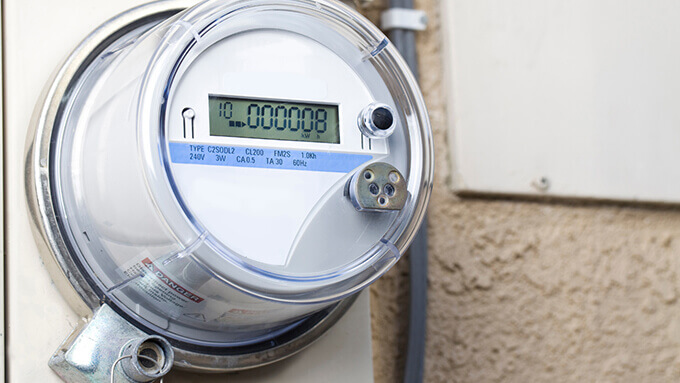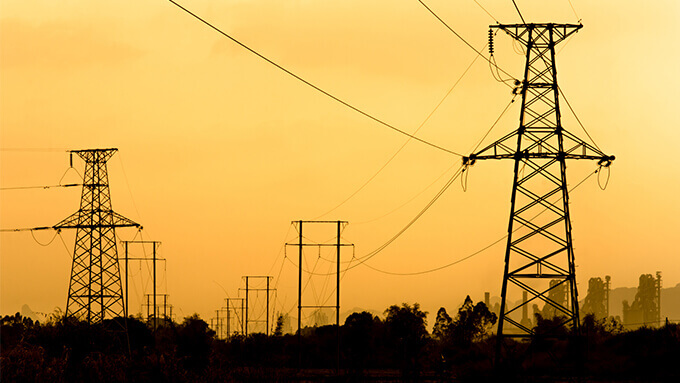Regulation on Green Certificate for Buildings and Developments
Introduction
The Regulation on Green Certificate for Buildings and Developments ("Regulation"), which was prepared for the purpose of reducing the negative impacts of buildings and developments on the environment by using natural resources and energy efficiently, entered into force through publication in the Official Gazette dated 12.06.2022 and numbered 31864.
Enforcement
With the introduction of this new Regulation, the prior regulation with the same name published in the Official Gazette dated 23.12.2017 and numbered 30279 was repealed. With the Regulation the procedures and principles regarding the establishment of assessment and certification systems, the qualifications of green certificate experts, green certificate assessment experts and training organizations, and the assessment criteria of green buildings and green developments are set.
In the same Official Gazette, the Implementation Communiqué for Implementation of Green Certificate for Buildings and Developments,[1] which was prepared based on the repealed regulation, was also repealed, through the publication of the Communiqué on Annulment of the Implementation Communiqué on Green Certificate for Buildings and Developments.
Scope
The Regulation covers the assessment and certification of sustainable environmental, social and economic performance of existing and new buildings and developments and is to be implemented by the Minister of Environment, Urbanization and Climate Change.
The annex of the Regulation also contains the Green Certificate Building Assessment Guideline (Annex-1), the Green Certificate Development Assessment Guideline (Annex-2) and Matters Regarding Green Certificate National Green Building and Green Development Certification Training (Annex-3), which have been prepared by the Ministry of Environment, Urbanization and Climate Change (“Ministry”). The assessment guidelines include detailed regulations on many issues, such as the assessment criteria of green buildings and green developments, crediting and rating principles, and qualifications of green certificate experts.
The Green Certificate and the Assessment Body
The Regulation defines a green certificate as the document that the assessment body issues to a building or development after conducting an assessment. A green certificate is issued based on the criteria defined in the assessment guidelines annexed to the Regulation. Accordingly, in the Green Certificate Building Assessment Guideline, buildings that can obtain green certificate are divided into types, such as residential buildings, office buildings, educational buildings, hotels, health buildings, shopping and commercial centers and others. Calculations vary depending upon the type of building and whether they are existing or new buildings.[2]
Pursuant to the Regulation, obtaining a green certificate is voluntary. The Regulation designates the Turkish Environment Agency as the assessment body. The assessment body reviews certificate applications and assesses the sustainable environmental, social and economic performance of buildings and developments based on the guidelines. The body also carries out the certification process and issues the certificate to buildings and developments that meet the criteria.
How to Obtain a Green Certificate
The Regulation sets out the path to be followed to obtain a green certificate.
Pursuant to Art. 5/3 of the Regulation, the building or development owner who wants to obtain a green certificate shall receive services from a green certificate expert and the assessment body. As mentioned above, the assessment body is the Turkish Environment Agency.
Art. 4/1(k) of the Regulation defines a green certificate expert as a person whose qualifications are determined by the Ministry and who is successful in the training provided by the Ministry or by training institutions or organizations[3] authorized by the Ministry.
The green certificate expert records the information and documents pertaining to the building or development to be certified, to the National Green Certificate System (YeS-TR), a system that has been established by the Ministry for online operation of the certification of green buildings and green developments, in accordance with the relevant assessment guidelines.
Next, the green certificate assessment experts working in the application assessment body analyze and score whether the building or development fulfills the conditions for being a green building or green development by evaluating the information and documents recorded in the system. Pursuant to Art. 4/1(j) of the Regulation, green certificate assessment experts are green certificate experts who work in the assessment body team and are responsible for the assessment and scoring of buildings or developments according to the assessment guideline, Pursuant to Art. 5/5 of the Regulation, the assessment is carried out based on the information recorded in the system and, where necessary, by conducting on-site surveys.
The Regulation also includes definitions for “green building” and “green development.” Accordingly, a green building is a building that is sustainable throughout its life cycle, energy efficient, in harmony with nature, low emissions and with minimized negative impacts on the environment, in terms of site selection, design, construction, operation, maintenance, renovation, demolition, waste disposal and waste water disposal. Similarly, a green development is defined as a development that has the characteristics listed for a green building, that causes minimal damage to the environment, and that includes buildings and the infrastructure and superstructure necessary for sustaining life.
Any hesitations and objections that may arise from the implementation of the Regulation shall be evaluated by the General Directorate of Professional Services under the organization of the Ministry.
Rights Acquired Under the Repealed Regulation
Art. 10 of the Regulation reserves the rights of legal entities appointed as training institutions by the Ministry and those who have received the necessary trainings and obtained green certificate expertise in accordance with the provisions of the abrogated regulation, before 12.06.2022, the date of publication of the regulation.
Conclusion
With the Regulation on Green Certificate for Buildings and Developments, which entered into force through publication in the Official Gazette dated 12.06.2022 and numbered 31864, the regulation with the same name published previously in the Official Gazette dated 23.12.2017 and numbered 30279 was repealed. With the Regulation, which was prepared with the purpose of reducing the negative impacts of buildings and developments on the environment by using natural resources and energy efficiently, the procedures and principles for the establishment of assessment and certification systems, the qualifications of green certificate experts, green certificate assessment experts and training institutions, and assessment criteria of green buildings and green developments are set. In addition, the assessment guidelines attached to the Regulation provide in-depth regulation of many issues, such as assessment criteria, crediting and rating principles, and the qualifications of green certificate experts.
- Official Gazette (bis 1), No. 31506, 09.06.2021.
- For detailed information please see the Green Certificate Building Assessment Guide in Annex-1 of the Regulation.
- Training institutions are authorized by the Ministry and published on the official website of the Ministry. Institutions and organizations with public legal personality subject to public or private law provisions, universities and non-governmental organizations operating in areas such as green buildings and green developments may operate as training institutions if they meet the criteria specified in Annex-3 of the Regulation.
All rights of this article are reserved. This article may not be used, reproduced, copied, published, distributed, or otherwise disseminated without quotation or Erdem & Erdem Law Firm's written consent. Any content created without citing the resource or Erdem & Erdem Law Firm’s written consent is regularly tracked, and legal action will be taken in case of violation.
Other Contents

The load increase / reduction instructions issued by the Türkiye Elektrik İletim Anonim Şirketi (“TEİAŞ”) and market participants’ obligations relating to real-time balancing usually become a point of interest following power outages, malfunctions, and/or administrative investigations...

The ongoing transformation of Türkiye’s energy sector demands that legal frameworks evolve just as rapidly. Goals such as increasing the share of renewables, enhancing supply security, accelerating investment timelines, and ensuring operations remain environmentally sustainable have driven significant legislative...

Despite the emphasis on “small-scale generation” regarding unlicensed (license-exempt) electricity generation plants in the Regulation on Unlicensed Generation in the Electricity Market (“Unlicensed Regulation”) , especially in the last three years, quite a few unlicensed electricity generation plants have...

A comprehensive inclusion of renewable resources in the energy mix makes the system less predictable and flexible. To offset this, additional flexibility is expected from the demand side. This flexibility may be attained is through by implementing demand-side awareness and market participation of the...

In the physical electricity trade, the metering of electricity plays a very important role in several respects such as (i) the metering of actual deliveries and receipts of electricity, (ii) estimation of the electricity generation and consumption in advance, (iii) determining the price payable by the parties for electricity supply...

Turkish electricity market has been going through turbulent times particularly in 2022. Steep increases in commodity prices that are used in electricity generation have urged the policy makers to take measures for minimizing further price increases in the electricity market as well as for maintaining security of supply...

The first regulations on electricity storage activities were included in Electricity Market Law No. 6446 dated 14/3/2013 ("EML" or "Law"). Subsequently, the Regulation on Storage Activities in the Electricity Market ("Storage Activities Regulation"), which implements the law, entered into force through its publication...

Electricity Market Law numbered 6446 (“EML” or “Law”) entered into force through publication in the Official Gazette dated March 30, 2013 and numbered 28603. Share transfers of companies that operate in the energy market became one of the newly regulated issues with the publication of the Electricity...

The Electricity Market Regulatory Authority (“EMRA”) amended the Regulation on the Unlicensed Electricity Generation in the Electricity Market. Within this context, EMRA prepared three different exposure drafts amending such Regulation on 15.05.2015, 26.10.2015 and 26.11.2015. Finally, EMRA has finalized...

The Regulation Concerning Unlicensed Electricity Generation in the Electricity Market (“Regulation”) has been amended by the amending regulation which was published in the Official Gazette numbered 31920 and dated 11.08.2022 (“Amending Regulation”). The Amending Regulation has introduced...

In response to the rapid increase of use of electric vehicles, legislative and regulatory initiatives have been taken to create a legal framework for electric vehicle charging services. On 21.12.2021, Electricity Market Act numbered 6446 (“EMA”) was amended to introduce charging services...








